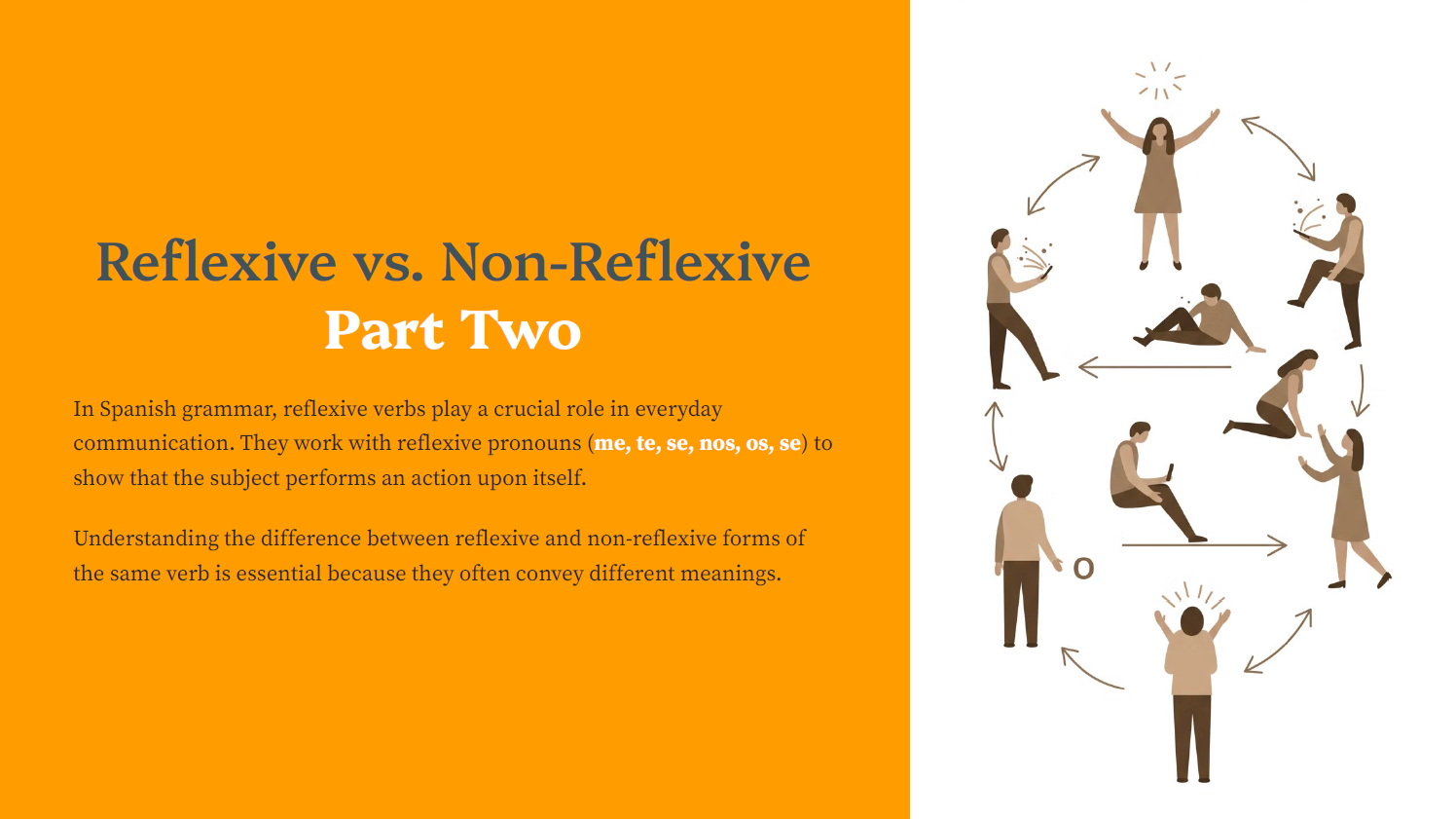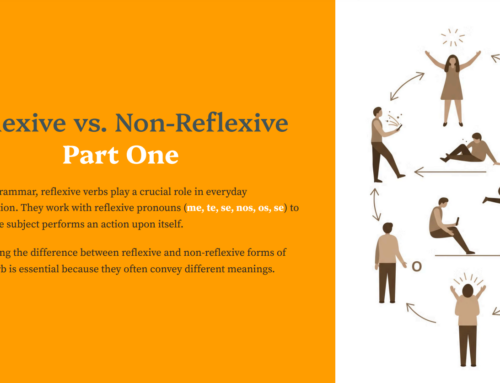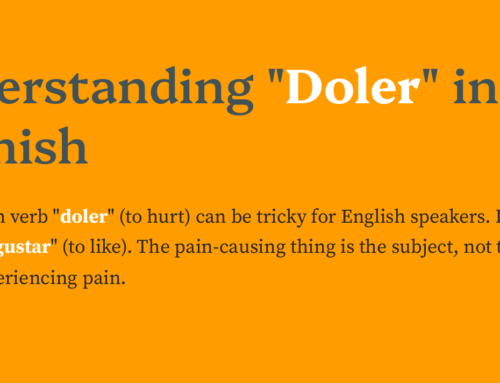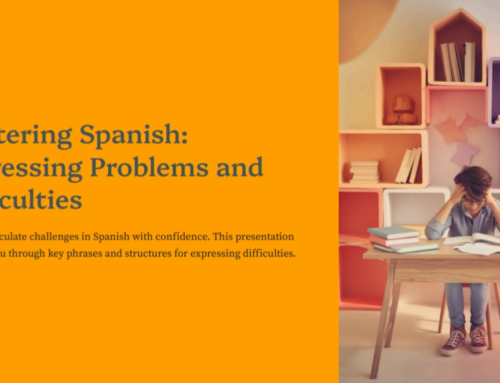Reflexive vs. Non-Reflexive
Part Two
In Spanish grammar, reflexive verbs play a crucial role in everyday communication. They work with reflexive pronouns (me, te, se, nos, os, se) to show that the subject performs an action upon itself. Understanding the difference between reflexive and non-reflexive forms of the same verb is essential because they often convey different meanings.
Ir vs. Irse: Destination vs. Departure
| Verb | Meaning & Example |
|---|---|
| Ir | To go (focuses on the destination) Example: Voy al cine. – I’m going to the cinema. |
| Irse | To leave / To go away (focuses on the action of leaving) Example: Me voy de la fiesta. – I’m leaving the party. |
Quedar vs. Quedarse: Meeting vs. Staying
| Verb | Meaning & Example |
|---|---|
| Quedar | To arrange to meet / To fit / To be left Example: Quedamos en el parque a las 5. – We are meeting in the park at 5. |
| Quedarse | To stay somewhere Example: Me quedo en casa esta noche. – I’m staying home tonight. |
Llamar vs. Llamarse: Calling vs. Being Named
| Verb | Meaning & Example |
|---|---|
| Llamar | To call (on the phone, to attract attention) Example: Voy a llamar a mi mamá. – I’m going to call my mom. |
| Llamarse | To be called (used for names) Example: Me llamo David. – My name is David. |
Encontrar vs. Encontrarse: Finding vs. Meeting/Feeling
| Verb | Meaning & Example |
|---|---|
| Encontrar | To find something Example: Encontré mi teléfono en la mesa. – I found my phone on the table. |
| Encontrarse | To meet unexpectedly / To feel Example: Me encontré con Juan en la calle. – I ran into Juan on the street. Me encuentro cansado hoy. – I feel tired today. |
Probar vs. Probarse: Tasting vs. Trying On
| Verb | Meaning & Example |
|---|---|
| Probar | To try (food, experiences, methods) Example: Quiero probar esa comida. – I want to try that food. |
| Probarse | To try on (clothes, accessories) Example: Me voy a probar este pantalón. – I’m going to try on these pants. |
Levantar vs. Levantarse: Lifting vs. Getting Up
| Verb | Meaning & Example |
|---|---|
| Levantar | To lift/raise something Example: Levanto pesas en el gimnasio. – I lift weights at the gym. |
| Levantarse | To get up (from bed, a chair, etc.) Example: Me levanto temprano todos los días. – I get up early every day. |
Acordar vs. Acordarse: Agreeing vs. Remembering
| Verb | Meaning & Example |
|---|---|
| Acordar | To agree Example: Acordamos los términos del contrato. – We agreed on the contract terms. |
| Acordarse (de) | To remember Example: No me acuerdo de su nombre. – I don’t remember his name. |
Dormir vs. Dormirse: Sleeping vs. Falling Asleep
| Verb | Meaning & Example |
|---|---|
| Dormirse | To fall asleep Example: Me dormí viendo la película. – I fell asleep watching the movie. |
| Dormir | To sleep Example: Normalmente duermo ocho horas. – I usually sleep for eight hours. |
Despedir vs. Despedirse: Firing vs. Saying Goodbye
| Verb | Meaning & Example |
|---|---|
| Despedir | To fire someone (job-related) Example: El jefe despidió a tres empleados. – The boss fired three employees. |
| Despedirse | To say goodbye Example: Me despedí de mis amigos antes de viajar. – I said goodbye to my friends before traveling. |
These verbs demonstrate how the reflexive form can create a completely different meaning. While despedir has negative connotations in the workplace, despedirse is a neutral or positive social action. Understanding these distinctions is crucial for intermediate Spanish learners to avoid potentially embarrassing miscommunications.
[ai360chat_trigger profile_id=”3″]





Leave A Comment
You must be logged in to post a comment.